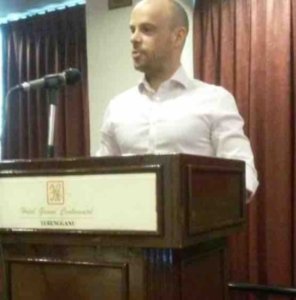View from within: How to operate a retail brokerage in today’s highly competitive times
Evan Tzivanakis, based in Hong Kong details his perspective on how to retain an efficient operating model in a world of high costs, tight margins and vast competition

By Evan Tzivanakis, FX industry executive, based in Hong Kong
So you start an FX brokerage and you have decided to have a sales team. 5, 10, 20 sales people or more.
You start interviewing. You look at CV’s and you see that some sales people have changed 4-5 companies in a period of 2 years. You may start to wonder what is going on. Are they ‘’bad’’ sales people or the previous companies did not have the right tools to support them?
In the management of sales personnel, managers’ goal is: empower them to achieve the best results and performance for the organisation. To achieve the desired outcome, managers invest a lot of time, effort and energy. Setting sales strategies and goals, develop budgets, create marketing campaigns and execution of plans are designed to reach the targets during predefined time frames.

It is true that middle management (and let’s say sales manager) have a lot of pressure from senior management, CEO’s and so on. Companies rely on them as being responsible for results, profitability, revenues and market share. At the same time and in line with the organisational structure, each sales person also experiences pressure to achieve his/her own sales quota.
Forex sales is not an easy job, particularly in a constantly changing regulatory environment. Gone are the days where a sales person will pick up the phone, pitch a client and money will simply come in. Regulation is stricter, traders are more informed and sophisticated and competition is numerous.
Success is connected with keeping the sales team motivated, fresh and well rewarded. Salespeople are mainly motivated by 3 main things:
1) Money. (Salary, commissions, bonuses etc.)
2) Competition. (To be the best in the office)
3) Recognition. (This is linked with career progression)
So the question is, what do companies need to do in order to:
1) Achieve the yearly target.
2) Keep salespeople motivated and fresh (and away from competitors’ recruiters).
3) Be profitable.
Below are some of my answers and ideas.
From company point of view the most important part is having a vision. How many times have you worked in a company without understanding the reasons as to why things are being done? Why changes are happening? Why are we doing things the way we do? Yes, senior management does not need to explain everything we do, but proper communication and translation of vision is necessary. And with my experience, successful FX companies do have a vision and are not just cash-cows for the shareholders. What do they want at the end of the day? Most often, conflict happens because members of the team (across all departments) do not know what the company’s vision (if any) is.
Psychology plays an significant role here. Communication is a key factor in creating unity and motivation. Once salespeople feel special, valued for their ideas, thoughts and questions as well as responsible for their production and performance, they will feel part of a well-functioning family and not just an employee. And will have a significant impact on their achieved results.
Next, the company must find the perfect formula to be profitable and at the same time pay sales people the best possible and most fair way. We all know the situation today is not what it used to be 5-6 years ago. Margins are tighter, more competition, battered pricing.
Being competitive requires providing clients excellent market conditions and very competitive prices. That in turn leaves managers with less flexibility. What is the cost of acquiring a client? How much is the average deposit per client? The average volume? How much we spend, how much we earned? Sometimes companies need to have magical skills in order to make money, pay employees well and keep shareholders satisfied.
Another issue some brokers face is high turnover, especially from the sales department. The cost of losing staff members are high and even higher that replacing them. Costs are not only money and time but also loosing internal knowledge and procedures.
Losing good employees may be even higher because head-hunters and competitors are closely watching and then make them job offers. So, invest in employee retention. Do what needs to be done to maintain a balance between short-term profitability and retaining your staff long-term.
Ok, it all looks easy. Written nicely in a piece of paper and making me look smart. So what is the best way or approach to achieve results and keep your people happy, and your good people not only happy, but with you?
Communication is key. Talk with your people. Do appraisals every 3 months. Understand what motivates them. Understand what is important to him/her. What will make this employee feel 100% committed to the company? To help make someone happy (whether personal or business), we must work hard to put ourselves in their shoes.
Just like you do when you are selling. Ask them questions, listen and understand what is important to them. Then aim to match their needs and values. Is better to focus first on the non-financial needs and wants of your employees and then work towards meeting their financial needs. And to meet the financial needs of your sales team, management must find the correct formula. But finding the right formula is not easy.
So let’s say you have a retail FX sales team.
Retail FX, compared with the institutional side of the business, has more clients and more applicants. In contrast to institutional, retail experiences higher applicants, higher turnover rate among active clients. So the sales team relations with the clients are an advantage, but with the knowledge that these relationships won’t last forever. (What is the average lifetime of a retail client with a broker? From my experience, in Europe and the Middle East tend to be 3–6 months, then they quit or get burned or bored.
I would say about 5% trade consistently for a year and longer. So sales efforts must focus on how to on-board each client and how to provide each client the best trading environment, best support and customer experience in order to keep the client with the broker for as long as it takes. That includes everything from sales approach, the way your sales people talk to their clients up to spreads, execution, technology, webinars/seminars provided and so on. Your general package.
Therefore the sales reps must be remunerated in a different way than institutional sales where there are less clients with more volume and different characteristics. An option is for the sales person to be paid on money he brings in and the number of accounts he activates to deposited ones.
The emphasis should be given on new active accounts yet, so the sales person will not rely too much on clients who re-deposit as these clients want retention rather than sales. (And here some companies have retention teams but not the best execution. Funny right?)
In case of a bonus, it should be structured in a way to keep the balance between money coming in and number of accounts acquired. Having a volume commission based remuneration can be dangerous due to the fact that some sales people can really annoy clients by calling them daily to provide market updates in order to push clients to trade. Most clients deposit to trade anyway and retention should be done only by experienced, smart and diplomatic sales people.
A basic salary must apply as well and should be good. A bit higher than the average basic salary, will reduce staff turnover especially in places like Cyprus where you have a lot of brokers but not so many staff to choose from. Another point is team work and general office atmosphere. I have seen very low basic salaries and an attractive commission structure. In my opinion this structure can kill teamwork and limits the overall attainable income.
A mixture of basic salary, commission on deposits, reward for number of accounts and commission on volume can be applied effectively. It is subject to company culture, vision and in what employees are looking for. Having the correct formula (and knowing how we can define it) is the job of the management.
The best approach it to always be aware, intentional and thoughtful about how we structure our financial incentives. We should not forget the fact that financial incentives are very important in our industry but perhaps as significant as making sure our employees feel heard, understood and valued. And even though our industry is advancing technologically, it will always be a people business. At the end of the day everyone wants to feel special and valued…









